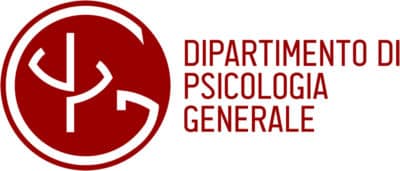
The Master in Psychopathology of Learning prepares professionals (psychologists, neuropsychiatrists, etc.) to provide consultancy, diagnostic, and intervention services for neurodevelopment disorders (e.g., DSA; ADHD, autism, language disorders, intellectual disabilities), emotional-motivational and behavioural issues, and school struggles from childhood to adulthood. By case examples and hands-on practice, students will acquire knowledge and competences on the diagnostic tools and rehabilitation/psycho-educational techniques with effective results. The Master trains professionals to work in clinical, educational and training settings.
The Master in Psychopathology of Learning provides knowledge and tools to assess and intervene in neurodevelopmental disorders, focusing on the role of family and school. The topics covered by the Master include a promotion of an effective parenthood, and school-family relationship management, to promote well-being in educational and occupational contexts of people with neurodevelopmental disorders. Moreover, the course provides the fundamentals for ongoing education, and the tools to evaluate the effectiveness and efficacy of the work carried out. For each module, the following topics are covered: scientific literature; evaluation tools; diagnostic framework; intervention path planning even in an integrated perspective.
The Master in Psychopathology of Learning prepares professionals (psychologists, neuropsychiatrists, etc.) to provide consultancy, diagnostic, and intervention services for neurodevelopment disorders (e.g., DSA; ADHD, autism, language disorders, intellectual disabilities), emotional-motivational and behavioural issues, and school struggles from childhood to adulthood.
The Master’s Degree in Developmental Psychopathology provides training on:
NEURODEVELOPMENTAL DISORDERS: DIAGNOSIS AND INTERVENTION
Cognitive functions associated to learning disorders. Verbal and visual memory, attention and executive functions, motor and visual-motor coordination abilities. Language disorders: diagnostic characteristics and procedures. Evaluation of general cognitive function, visual-spatial abilities, memory, reading pre-requirements, writing and calculation. Definition of non-verbal learning disorder; theoretical framework, evaluation instruments and intervention. ADHD: identification of the disorder and intervention methods. Emotional, behavioural and relationship issues related to learning disorders. Autistic spectrum disorders: identification of the disorder and intervention methods.
DIAGNOSTIC PROCEDURES
Setting up the psycho-diagnostic survey process: from the elements collected from the interview to planning the cognitive areas to be investigated. Selection of school learning and associated cognitive functions status assessment tools. Importance of psychometric characteristics of the diagnostic tools: ecological, concurrent and discriminating validity. Evaluation of the effectiveness and efficiency of rehabilitation processes.
PSYCHOPATHOLOGY OF LEARNING
Presentation of the classification of specific learning disorders, according to the diagnostic criteria of DSM 5 and ICD 11, with reference to national guidelines.
DIAGNOSIS AND TREATMENT OF READING, WRITING AND CALCULATION
Presentation of neuropsychological and evolutionary models for reading, writing and calculation learning. Evaluation and intervention tools concerning learning, writing and calculation. Presentation of the evaluation tools, correction methods and result interpretation. The main instruments suited to intervene will be presented on a case to case basis, based on literature.
STUDYING DIFFICULTIES AND EMOTIONAL-MOTIVATIONAL ASPECTS LINKED TO LEARNING DIFFICULTIES
Presentation of cognitive, metacognitive and emotional aspects linked to learning and study abilities. In-depth module on evaluation and intervention methods concerning all the topics.
DIAGNOSIS AND INTERVENTION OF INTELLECTUAL DISABILITIES
From evolutionary stages to remote pathological medical record: what to ask and how to formulate questions. Restitution interview structuring method: explaining the profile resulting from the evaluation and sharing work strategies. Drafting of the psychodiagnostic report, by explaining all strengths, weaknesses and identifying the most effective strategies to support patient development. How to promote contact with school and plan multi-focus interventions.
The Master is affiliated with the LabDA spin-off, with possible traineeship activities (after checking their availability). The LabDA spin-off deals with neurodevelopmental disorder assessment and interventions.
The Master is affiliated with AIRIPA, the Italian association dealing with research and intervention in learning psychopathology, which organizes seminars and events to train the professional figures who deal with neurodevelopmental disorders.
After completing the Master, attendees can become members of the AIRIPA.
The Master is mainly provided in person; during the lessons, theoretical aspects and hands-on practice on clinical cases will be carried out. Furthermore, there will be remote training hours, to allow the students to explore the topics treated during the lessons even further. The Master includes a mandatory 300-hour traineeship, to be completed in a public or private institutions dealing with the topics covered during the course. In order to achieve the title, students are required to pass two exams and draft a final dissertation.
The general ranking of merit will be published on the Italian page of this Master according to the timing provided in the Call.
Information
FAQ
Lessons are usually held every two weeks, on Friday (10:30 AM – 6:30 PM) and Saturday (8:45 AM – 5 PM). Apart from traditional lessons, the Master also includes hands-on practice on clinical cases, with the purpose of promoting a correct implementation of the diagnostic methodology and of the rehabilitative project. Part of the practice is devoted to the knowledge and use of the assessment tools presented during the Master’s lessons. The Master entails two tests, aimed at evaluating the general acquisition of the contents, with particular focus on the methodological aspects related to diagnosis and treatment. The Master entails the presentation of a Master’s Dissertation in September, concerning the course topics, which can be based on a group research, on the analysis of one or more cases, or on the collection of bibliographic material.
Yes, the important thing is that the practice is affiliated with the University of Padua, and that the traineeship tutor is an expert in the Master’s topics.
For every topic presented during the Master, diagnostic and intervention paths will be shared through clinical cases.

